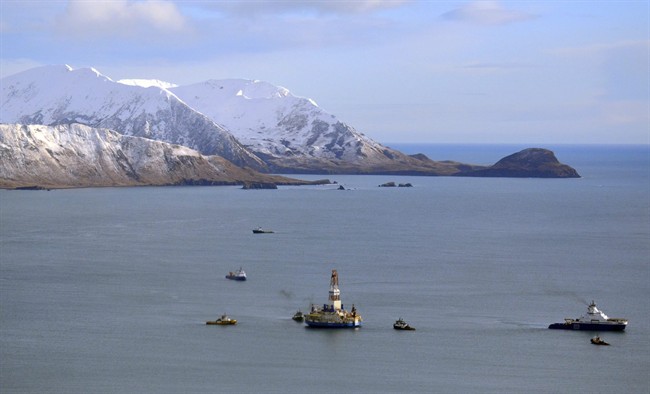The federal government is opening talks with northerners on managing offshore energy exploration in the Canadian Arctic, a move some hope signals a coming relaxation of the current ban on potential development.

“I would hope that’s the case,” said Northwest Territories Premier Bob McLeod.
“We’ll see as we negotiate. I certainly am feeling very optimistic.”
READ MORE: Offshore ban in Arctic will hurt northern economy: NWT premier
Northern Affairs Minister Dominic Leblanc and Natural Resources Minister Amarjeet Sohi announced Thursday that Ottawa will negotiate a Beaufort Sea oil and gas co-management and revenue-sharing agreement with the governments of the Northwest Territories and Yukon, as well as the Inuvialuit Regional Corporation.
In 2016, Prime Minister Justin Trudeau announced an indefinite moratorium on all offshore energy exploration in Canada’s Arctic, subject to a review every five years. He made the announcement in conjunction with then-U.S. president Barack Obama, who brought in similar measures.
READ MORE: Obama administration bans new offshore drilling in Arctic Ocean
Since then, U.S. President Donald Trump has announced plans to open the American Arctic to drilling.
Leblanc, who recently toured the northern capitals, emphasized the importance of resources to the territorial economies.

Get weekly money news
“Our partners were very clear,” he said in a release.
“They want to be involved in the management of Arctic offshore oil and gas resources, and they want to see economic prosperity and jobs that will benefit Indigenous peoples and all Northerners in the future without affecting the health of their environment.”
READ MORE: Arctic oil spills likely to spread across borders: study
Sohi said in a release that the government has been working with both the territories and the energy industry.
“We heard loud and clear that the protection of the Arctic environment and the sustainable, inclusive development of the region for the benefit of Northern residents and all Canadians are critical to growing Canada’s economy.”
McLeod said much will depend on the five-year review, due in 2021.
He said his government will work toward an agreement similar to one reached by the Maritime provinces for their offshore.
“The GNWT has been waiting for today’s announcement for some time and I appreciate that Minister LeBlanc has been able to make tangible progress,” he said in a release.
READ MORE: Shell exploration plans in Alaska stoking concern, hope in Canada
Watch below: Some videos from Global News’ coverage of the debate over drilling in Canada’s Arctic.
Leblanc and Sohi also promised to involve northerners in a research program that takes into account marine and climate change science.
After a flurry of interest in the early 2010s, interest in the Beaufort offshore died down. Imperial Oil, which still holds large exploration leases in those waters, cancelled its drilling program in 2015.
As part of Thursday’s announcement, the government also said it would preserve existing offshore exploration rights for energy companies and refund remaining deposits related to those licences.
There are 63 exploration and discovery licences in the Beaufort Sea. The financial consequences of that promise weren’t immediately clear.









Comments